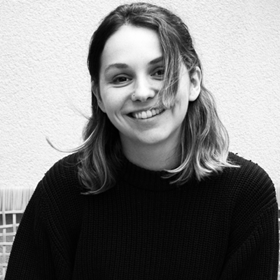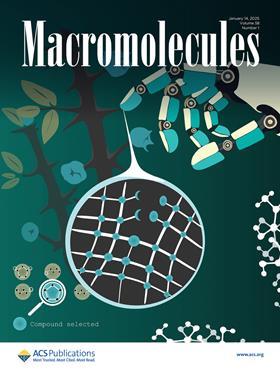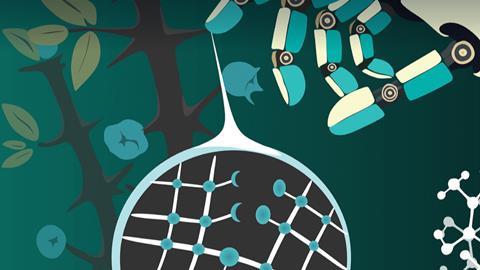Researchers at the Vrije Universiteit Brussel have created a database for chemists working with Diels-Alder reactions, focusing on covalent adaptive networks, they state in Macromolecules.
Covalent adaptive networks (CANs) are interesting for two reasons, says PhD student and first author Lise Vermeersch. ‘First, they are materials that can self-heal when exposed to, for example, heat, light or mechanical energy, which is fascinating in itself.’
This self-healing property gives the materials a longer lifespan and ties in with the second point. ‘The materials are very flexible because of the reversible reactions: you could easily recycle them or combine them into composites. In other words, they are very versatile.’

‘These are high-end applications, though; it’s an expensive technology. We won’t see self-healing shoes, but we might see self-healing solar panels for space, because you can’t easily repair them if they break.’ In addition, it would be helpful if you could incorporate it into thermosetting plastics or wind turbine blades, which are materials that are difficult to recycle at the moment.
Combination
To help other chemists, Vermeersch and her colleagues created a database of more than a hundred Diels-Alder reactions and studied them with quantum chemical calculations. ‘In particular, we wanted to combine computational and experimental data’, explains Vermeersch. ‘In experimental papers, the kinetics of the reactions have already been widely reported and CANs have been made. In computational studies, however, we see this type of information is lacking, so we started to collect these data by looking at both reaction barriers and reaction energies.’
Diels-Alder reactions
The Diels-Alder reaction is a well-known reaction in organic chemistry in which two molecules join together to form a ring. One is a diene, which is a molecule with two double bonds, and the other is a dienophile, which usually has one double bond. When they react, they form a cycloalkene. This reaction is reversible and is the basis for covalent adaptive networks.
Something that needs further study is the stability of the reaction products. ‘The reactions we use are between furan and maleimide’, explains the PhD student. We have seen that the products are hardly stable. This relative instability leads us to suspect that the reversibility of the CANs depends on it, which we didn’t expect. We would like to pursue this further, also to strengthen the link between computation and experiment.’

Glass transition state
To demonstrate the practical application of their database, the researchers give an example in a case study. In it, they studied materials with a high glass transition state that are vitrified at relatively low temperatures. This means that the self-healing reactions are quite slow, and it would be better to speed them up; instead of waiting months for the reactions to occur, they should happen in hours. That’s wy they looked at known diene-dienophile combinations and calculated both their kinetic and thermodynamic properties. Their conclusion was that you could extract a number of interesting diene-dienophile pairs from the database, some of which are even bio-based.
‘I think the study is useful for both computational and experimental chemists’, says Vermeersch. ‘One of our goals with this database is that experimental chemists can refer to it to see which reactions they can use to make new CANs. But computational studies will also be needed to find the right linkers. In addition, researchers who want to delve deeper into the properties of Diels-Alders reaction can also make good use of our data.’
Impact
Ultimately, this work should help build and study larger systems. ‘We are now also working on molecular dynamics to study real polymer networks. This will allow us to look at tensile strength, glass transition temperature and so on; it is the first step towards a multiscale model for predicting real material properties.’
At the same time, Vermeersch believes it is important to look at the impact of the materials she is studying at a fundamental level. ‘We need to consider the environment, people and society: will the whole material – not just the individual parts – be more sustainable? I sometimes miss that in fundamental research. You have to make smart choices from the very beginning when you want to study materials and their properties.’
Vermeersch, L. et al. (2024) Macromolecules 58(1), DOI: 10.1021/acs.macromol.4c01748














Nog geen opmerkingen